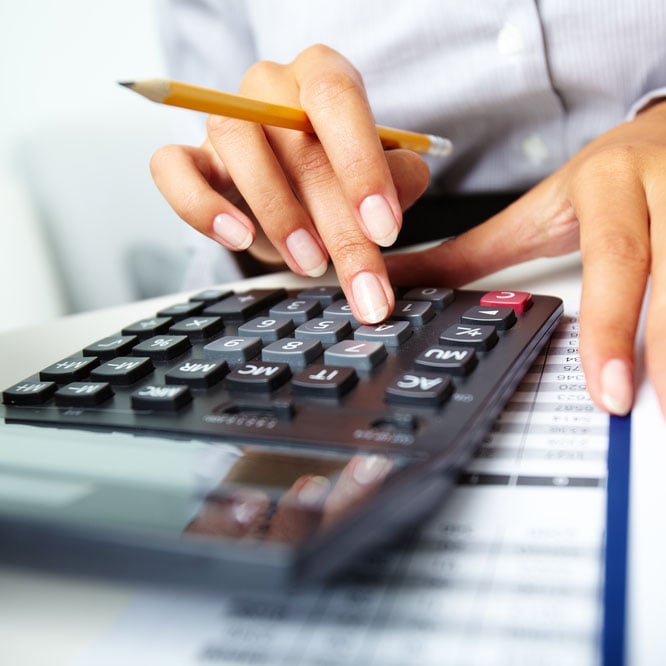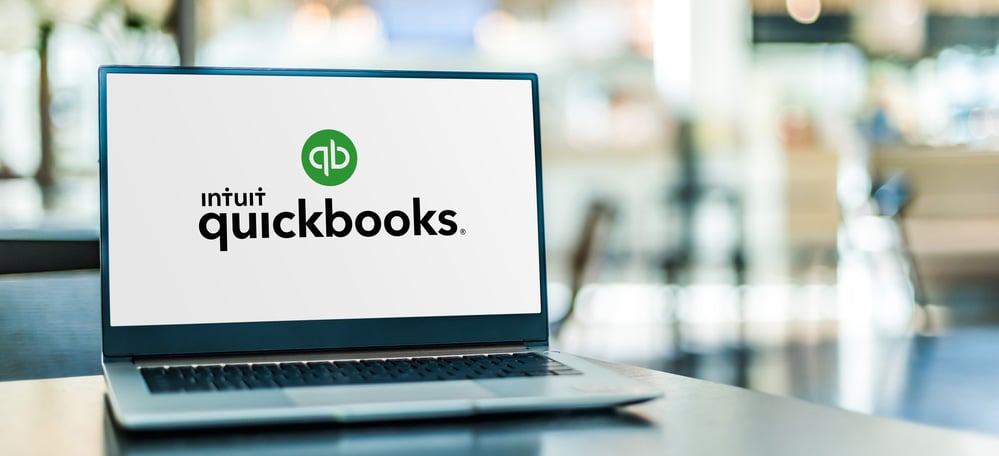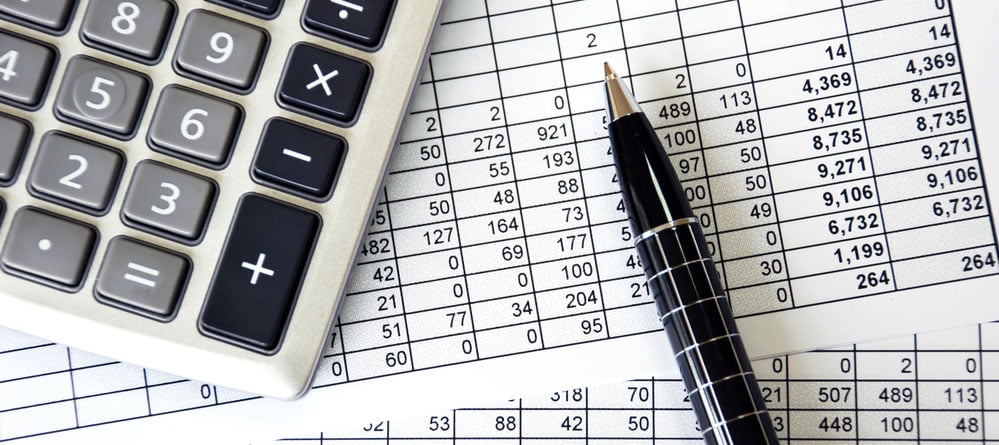
Small Business Accounting and Bookkeeping Guide - 2025
Overview of the Accounting and Bookkeeping Guide

Small business owners have many responsibilities to juggle in their day-to-day lives. However, some of the most important include bookkeeping and accounting. The financial health of your organization is essential to longevity, and without well-kept books and accurate tax returns, this stature is nearly impossible to upkeep.
Accounting and bookkeeping can be a daunting task, especially for business owners who have no previous experience or knowledge on the topic. That is why we put together this all-inclusive business accounting and bookkeeping guide to help small business owners get a jumpstart. Keep reading for the in’s and out’s of with this small business accounting and bookkeeping guide.
Click on the topics below to read each section of the small business accounting and bookkeeping guide
- The Difference Between Bookkeeping and Accounting
- How to use QuickBooks for Small Business
- Why You Need a Small Business Tax Accountant
- Year-End vs. Month-End Accounting
- How Tax Advisors Help You Save Money
- How to Choose a Small Business CPA
The Difference Between Bookkeeping and Accounting
As a small business owner, you have a lot of responsibilities to stay on top of. Accounting and bookkeeping are two of the most vital tasks to keep your business running smoothly. However, many small business owners don’t realize that accounting and bookkeeping are two separate entities. This helpful accounting and bookkeeping guide will explain further.
What is Bookkeeping
Bookkeeping is defined as the process of recording financial transactions for a business. Every business should have a set of books to avoid bleeding money as it shows its movement in and out of operations.
To properly keep books organized and up to date, businesses need to keep track of daily transactions including:
- Customer invoices
- Sales receipts
- Vendor bills
- Bill payments
- Credit card charges
Bookkeeping is a foundation of accounting and refers to records of transactions.
What is Accounting
Accounting involves the activities of recording, summarizing, analyzing, and reporting transactions. Accountants present vital financial information that helps businesses make important decisions.
While most business owners can handle bookkeeping on their own, a CPA should be brought in to handle accounting as there are more things to handle that require expert knowledge such as:
- Tax planning
- Budgeting
- Tax execution
The Difference Between the Two
The bottom line is that bookkeeping is just a foundation of the whole accounting system. Accounting uses information provided by bookkeeping to prepare financial statements and reports.
Accounting incorporates a broader range of tasks and knowledge including various sub-branches and consolidating financial information for stakeholders whereas bookkeeping involves keeping an ongoing record of transactions for the company.
For a more in-depth look at the differences between accounting and bookkeeping, read this helpful article.
How to use QuickBooks for Small Business
Lack of an organized system to manage cash flow is one of the main reasons small businesses fail within the first five years. However, with programs such as QuickBooks, there is an easy and affordable solution to assist your company with managing cash flow, monitoring expenses, and keeping track of financial health to improve your bottom line.
What is QuickBooks
QuickBooks is a financial management software for small businesses created by Intuit, America's leading financial software provider. QuickBooks allows you to manage income, track expenses, and keep tabs on your business health.
It has dozens of features that were created to help you better manage your companies finances. When properly paired with an educated CPA, QuickBooks can save you time and money by streamlining the way you run your business.

QuickBooks Features
QuickBooks offers multiple features designed to help small business owners including:
- Electronic payment functions
- Remote access
- Payroll assistance
- Invoice, mileage, expense tracking
What Version is Best for my Business
There are multiple versions of QuickBooks. Depending on your business and QuickBooks needs, different versions will be better suited for you.
QuickBooks Pro
This version is best for small businesses that have up to three employees. It allows you to:
- Download bank transactions
- Create invoices
- Track expenses
- Prepare tax reports
Online vs. Desktop
The online and desktop versions also offer different features. Online offers:
- Up to 25 users
- Access to data anytime and anywhere
The desktop version is more suitable for businesses who need:
- Up to 40 users
- Customization of how to track data
- More than standard transaction tracking
QuickBooks is a great option for small businesses needing a more organized method to track their finances. For more information about how to use QuickBooks as a small business owner, take a look at this guide.
Why You Need a Small Business Tax Accountant
Tax season is stressful for everyone but is especially true for small business owners. Between juggling all the other tasks that accompany running a business, taxes are an additional item that takes up valuable time and resources. A small business tax accountant can take this off your plate so you can continue to focus on running and growing your business.
What is the Role of a Small Business Tax Accountant?
A small business tax accountant partners with you to ensure you are tax compliant while helping analyze your finances to make valuable suggestions for your business’s growth. Some of their responsibilities include:
- Quarterly payroll taxes
- Audit assistance
- State and federal tax preparation and filing
- Give financial advice
- Assist with payroll

Why You Need a Small Business Accountant
As a small business owner, you try to cut costs wherever possible which makes you question why you should spend money on an accountant. Here are a few reasons to consider bringing on an accountant:
- They help analyze financial data and make recommendations for your business
- Assist with payroll and taxes to free up more of your time
- They will handle the organization and preparation of financial statements
- As experts on tax law, they will ensure your business remains compliant
- Assist with IRS and State audits
A small business tax accountant can help your business in a variety of ways. For additional information about how tax accountants can assist your small business, read this helpful article.
Year-End vs. Month-End Accounting
Adopting a well-organized accounting process by bringing in an accountant will help your business reach its goals faster and more efficiently. However, when choosing the right accountant for you, it is important to determine whether you want to hire a year-end or month-end accountant.

Year-End Accounting Process
Year-end accounting processing is the process of inspecting and updating accounting records at the end of a year. This type will require your accountant to look back through all of your records from the entire year and organize them. Responsibilities of a year-end accountant include:
- Gathering and analyzing financial statements from the entire year
- Account for inventory
- Reconcile bank statements
- Review accounts
- Back-up information
They will ensure that your records accurately reflect your business's financial standing.
Month-End Accounting Process
Monthly accountants balance your books and organize your records from the previous month. Month-end accounting tasks tend to include:
- Recording daily operational and financial transactions
- Recording monthly journal entries
- Reconcile balance sheet accounts
- Review revenue and expense accounts
- Prepare financial statements
Which One is Better?
Month-end accounting is a better option for small business owners. Having an accountant review your company’s financial standing monthly will keep your books more organized and will give you greater insight into your finances than year-end accounting will. This will help you make more informed decisions for your business to ensure long-term success.
For more information about year-end vs. month-end accounting processes and why month-end is a smarter choice, check out this blog.
How Tax Advisors Help You Save Money
While many small business owners assume handling taxes themselves will save them money, they are oftentimes unaware of how much money they are actually missing out on saving by foregoing hiring a tax advisor. Hiring a professional to handle your books will free up more of your time to focus on other essential aspects of your organization.
What is a Tax Advisor?
A tax advisor is a fiscal expert with extensive training and a thorough understanding of tax administration and legislation. The services of a tax advisor are generally employed to minimize taxes payable while keeping consistent with the law in intricate financial circumstances.
Multiple professional titles fall under the category of a tax advisor. These include:
- Certified public accountant (CPA)
- Tax attorney
- Some financial consultants
Tax advisors are experts on tax law and therefore are able to help keep your business compliant in this ever-changing field. Oftentimes, a tax advisor is outsourced by companies but they can be hired internally as well.
How a Tax Advisor Can Help You Save
Tax advisors can help small businesses save money by:
- Avoiding tax penalties
- Investing without adverse tax consequences
- Manage the tax impact of financial gains
- Financial management of your organization
Tax advisors are educated experts in the field. They are knowledgeable in various financial areas and can help your business stay out of trouble with the IRS and earn more money come tax season. For a deeper look at exactly how tax advisors can help you save money, read this informative article.
How to Choose a Small Business CPA
Now that you understand what a CPA does and how they can help you, it’s time to find the perfect accountant to hire. However, this can be a challenging process and it’s hard to decide where to begin. Here are some tips to help you streamline the process.
Questions to Ask Yourself Before You Start the Search
It’s important to know exactly what you need before you begin your search, that way you’ll know exactly when you find the perfect fit. Here are some questions to ask yourself to help narrow down your search:
- What services do I need taken care of? Payroll, tax preparation, bookkeeping?
- Do you need a CPA who can also serve as a business coach?
- What kind of hours do you expect them to work, and will they be month-end or year-end?
Once you understand your answers to these questions, you can start narrowing down your search to CPAs who will fit your criteria.
How to Choose a Small Business CPA
There are multiple ways to search for accountants to hire. Here are a few:
- Search online
- Obtain references from other small businesses
When you have finally narrowed down your search to a few, you should sit down and have a conversation with them to ensure your expectations are mirrored. Some questions you may want to ask include:
- What credentials they have
- Will they assist if you get audited
- What is the onboarding process
- Do they provide strategy sessions
- Are they tech-savvy
- Are they fixed-fee or charge by the hour
These questions will help ensure you are both on the same page before you start working together and allow you the opportunity to work out any kinks before they become detrimental to your future relationship.
For more tips on finding and choosing the right CPA for your small business, take a look at this helpful guide.
Sign up for our newsletter
